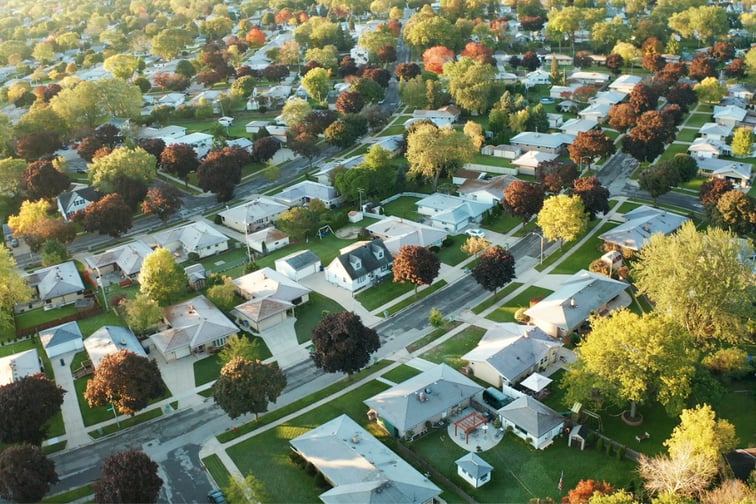

Louisiana insurance commissioner Jim Donelon held a Press conference on Tuesday to offer an update on the state’s homeowners’ insurance crisis, as legislators fight to address recent failures and prevent further collapses.
The Pelican State was hammered by three hurricanes in 2020, with Ida following suit in 2021. Carriers had paid or reserved $12.1 billion on Hurricane Ida-related claims alone in Louisiana up to March 31, according to figures from the Louisiana Department of Insurance.
Towards the end of June and into July, up to 87,000 Louisiana policyholders were still “scrambling” to replace cover, according to Donelon, following this year’s insolvencies of Southern Fidelity and Lighthouse, and the solvent exit of Fed Nat’s Maison.
Legislators have prepared an onslaught of reforms in a bid to rein in the state’s spiralling property insurance market. These include claims changes, capital mandates, and resilience measures.
Newly minted homeowners’ or fire and allied carriers in Louisiana must have $10 million in capital and surplus from September 2022, according to an act signed by the governor in May. Domestic insurance carriers already transacting homeowners’ or fire and allied business in Louisiana must boost capital to $5 million by the end of 2026.
The requirement increases to $10 million in capital and surplus for all domestic carriers by 2031, more than triple the $3 million currently needed.
The change is intended to make sure carrier owners have more “skin in the game”, according to Louisiana insurance commissioner Jim Donelon, as rates in Louisiana skyrocket and capacity shrinks.
“We’ve checked all of our domestics and the companies writing in Louisiana, all of whom are at the $5 million level already, so there will be no burden to them to meet that immediate requirement,” Donelon said.
The move echoes an earlier Florida initiative, which Donelon said Louisiana had “copied”.
“By having $10 million of their own money on the table invested in their company […] the expectation and hope […] is that those owners will be more prudent, more conservative [and] less miserly” as they work to secure reinsurance, according to Donelon.
Meanwhile, the state’s insurance incentive program will seek to encourage new capacity into coastal areas by offering grants of between $2 million and $10 million from 2024.
“Funding is going to be the biggest issue – how much money are we going to be able to put aside for this? But that’s something that we can deal with,” said Senate Insurance Committee chair Senator Kirk Talbot.
Speaking at the Tuesday media briefing, the commissioner noted that he remains “in dispute” with State Farm, which declined to follow a directive on loss of use benefits payouts following Hurricane Ida.
Some local authorities did not put evacuation orders in place due to “gridlock” fears as the category four storm bared down on the state. Allstate was among insurers to voluntarily waive an evacuation requirement, but State Farm has not budged, according to Donelon.
This has led to the development of an act that prevents local evacuation orders acting as the only trigger for loss of use benefits, in a bid to force carriers to take a different approach in areas where a state of emergency or disaster has been declared.
“Those coverages must now be triggered without regard to the issuance by local officials of a mandatory or any form of evacuation order at all,” Donelon said.
Acts have also been brought in to deter more than three different loss adjusters being assigned to one claim in a six-month period, and to provide guidance for people going through the catastrophic claims process.
“One of the biggest complaints we still hear from constituents - and that we heard when we traveled around the state was: multiple adjusters; adjusters not answering the phone; when they got a new adjuster they had to start the whole process over,” Talbot said.
“What this bill did was say: if you’re on your third adjuster in a six-month period, that the insurance companies are required to give you one person that is going to be your point of contact, and someone that knows your claim, knows the process, and gives you a written status report of your claim.”
Boosting resilience has also been on the cards. Under the Louisiana Fortify Homes Program, grants will be provided towards retrofitting roofs.
“I believe this program will help a lot of folks resist damage in the near future [and potentially reduce] residential property insurance costs for the entire state in the longer term,” House Insurance Committee chair Representative Mike Huval said.
Mandatory catastrophe response plans will also be brought in, effective from the start of next year. These will require carriers to have a detailed plan of action for remaining operational in catastrophe situations.
“In its review of the plans, the Department of Insurance will have the ability to determine whether the insurance catastrophe response plans are acceptable,” said Huval.
“The commissioner of insurance has the authority to take regulatory action against any entity that violates the law.”
